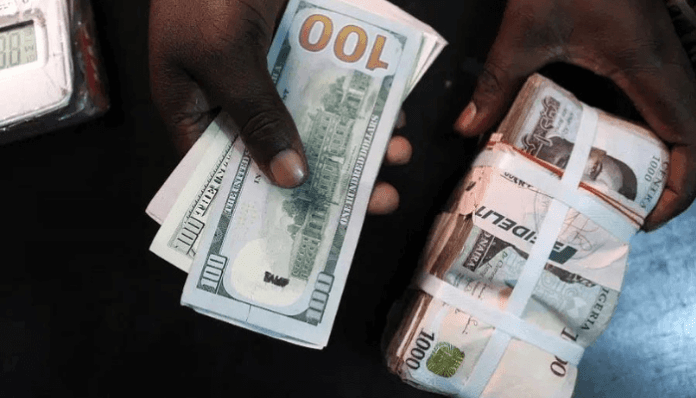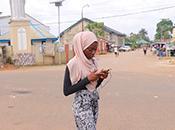The naira/dollar exchange rate has stabilized on the official foreign exchange market as a shortage of redesigned naira persists in Africa’s most populous country.
In the Investors and Exporters (I&E) currency window, Nigeria’s official foreign exchange market, the dollar has traded at around N461/$1 year-to-date, albeit at a weakening level compared to N456.50 quoted on the 23rd. December 2022, data indicated by the FMDQ.
Over the past three trading days, the dollar has traded at N461.50/$1 at the I&E window, also known as the Nigerian Autonomous Exchange Fixing (NAFEX).
The local currency appreciated against the dollar on Thursday, gaining 0.27 percent (N2) to N752 per dollar against N754 closed on Tuesday in the parallel market, popularly called the black market.
So far this year, the naira has lost 1.86 percent (N14) as the dollar traded at the rate of N738 on the first trading day of the year at the current rate of N752/$1, on the unofficial market.
“Demand for dollars has slowed as importers are not making more sales due to a shortage of the new naira,” a trader who sells dollars to importers told BusinessDay.
On December 15, 2022, the Central Bank of Nigeria (CBN) launched the redesigned naira and planned to phase out the old naira notes by January 31, 2023, but after strong pressure from the Senate and members of the public, they did so. extended to February 10, 2023, after which the old naira notes will cease to be legal tender.
Commenting on the impact of the redesigned naira policy on the exchange rate, Uche Uwaleke, professor of capital markets at Nasarawa State University, Keffi, said: “The impact is likely to be positive as the redesign of the the currency aims to reduce the currency in circulation which in turn should reduce the amount of naira being used to chase the dollar, especially in the parallel market.”
“On the currency front, market levels have stabilized during the period within the N740/N750 dollar bid/ask rate cap,” said Aminu Gwadabe, national president of the Bureau of Traders Association. Exchange (BDC) of Nigeria, adding that liquidity in the market remains low with high demand pressure.
Gwadabe said CBN’s focus now is to push all transactions electronically, especially with the launch of Afrigo’s domestic card payments, aimed at reducing or eliminating the dominance of Visa and Master cards for payments.
Specific actions such as no cash withdrawal at the counter, cash only through ATMs, POS were introduced to improve inclusion, he said.
According to him, the unwanted challenges for small merchants in the ecosystem and beyond, for the unbanked and underbanked, have created several queues across the country at bank ATMs.
“It is recommended that the CBN consider setting a limit to banks on cash payment of the redraw coin to help circulation of the new north and awareness,” he said.
Also Read: New Naira: Queues At ATMs Will Gone Soon, Says CBN
Godwin Emefiele, the governor of the main bank, has ordered money deposit banks to start paying customers new naira over the counter, with a daily limit of N20,000.
Gwadabe said that the CBN should also look at BDC spreads and take advantage of them for the inclusion and distribution of domestic AfriGo card domestic card payments.
“We are already facing cryptocurrency hegemony and there is a need for concerted efforts to prepare, collaborate and implement evidence-based solutions to FX’s perennial volatiles,” Gwadabe said.
Last week, Moody’s Investors Service, a global credit rating agency, downgraded the government’s long-term foreign currency and local currency issuer ratings, as well as its senior unsecured foreign currency debt ratings from B3 to Caa1, and changed the outlook for the country to stable.
The agency further lowered Nigeria’s local currency and foreign currency ceilings to B2 and Caa1 respectively, previously from B1 and B3.







